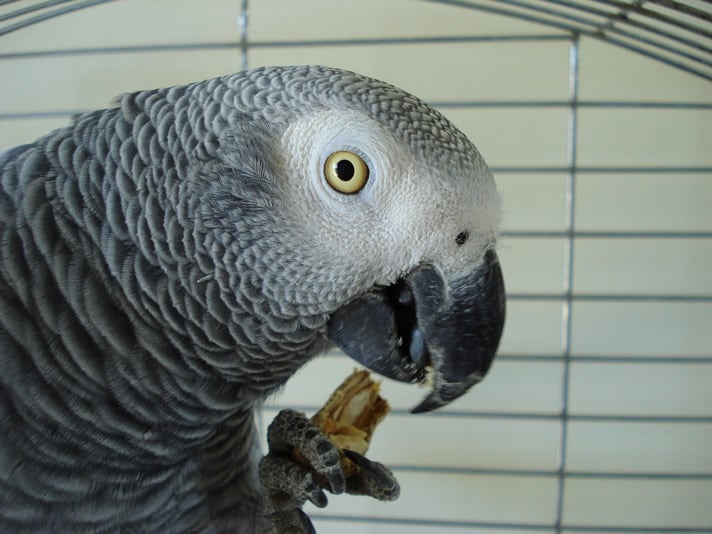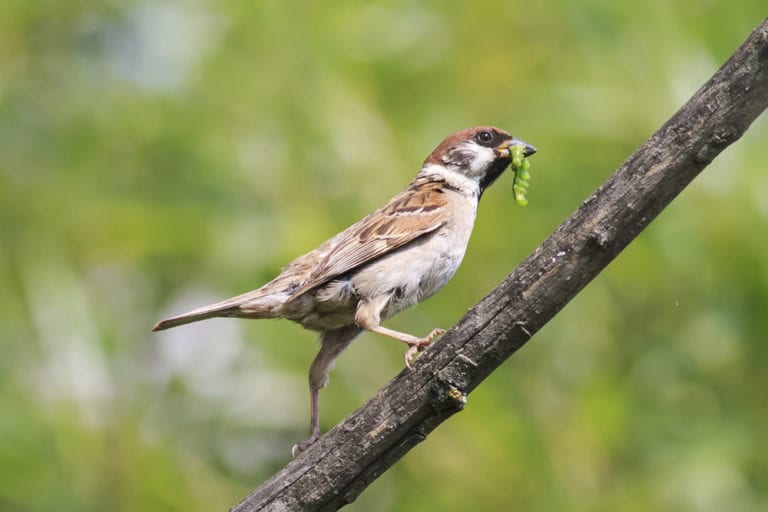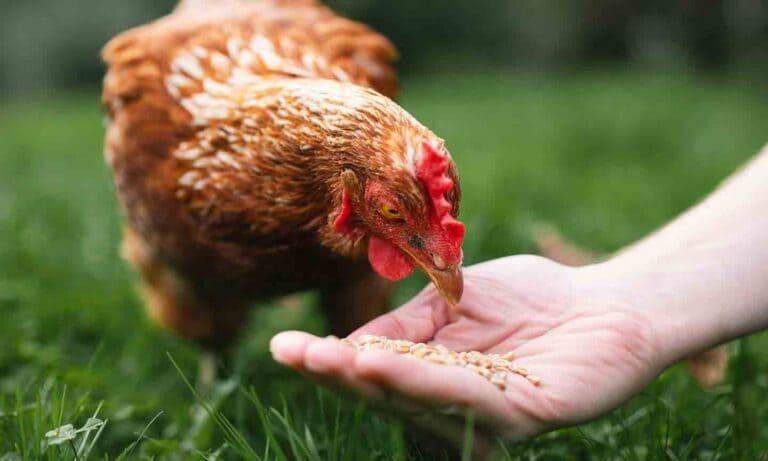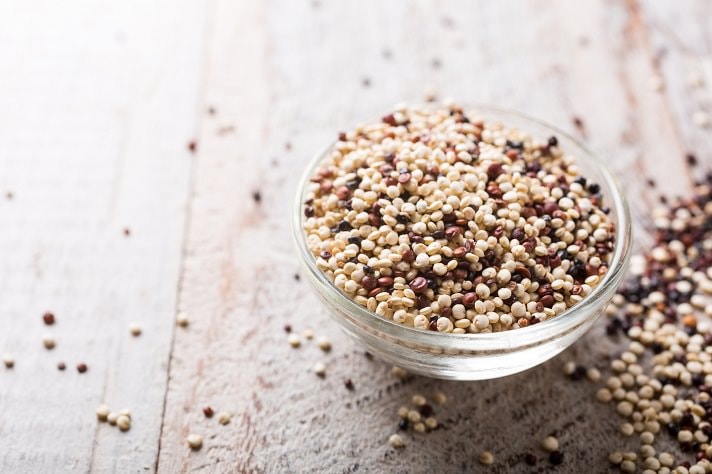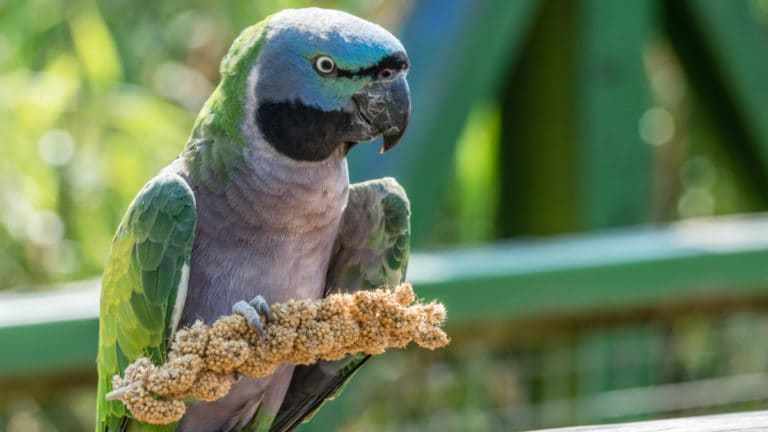Q.
Is it bad to feed peanuts to birds?
A.
I turned to Donna Muscarella, Ph.D. at the Dept. of Microbiology and Immunology of Cornell University’s Veterinary Medical Center for help with this question. Her response provided a wealth of information, as did those of her colleagues, Dr. Noah Abou-Madi and Dr. James Morrisey.
Problems With Peanuts
Aflatoxin, a group of toxins produced by certain species of the fungi aspergillus, is a potential contaminant of peanuts, cereals and grains.
“Improper storage in warm, damp, dark, conditions promotes growth of the mold,” says Muscarella. “Aflatoxin is a potent liver toxin, and birds are exquisitely susceptible to its toxic effects. This was reported a long time ago in England, where many turkeys died from Aflatoxicosis after eating contaminated corn. At the time this syndrome was referred to as ‘Turkey X’ disease. To this day, there are clear accounts of pet birds dying after eating moldy peanuts and grains.
“Aflatoxin is also toxic to mammals, including humans,” she continued. “Chronic, low-level exposure in food, which is not enough to cause acute toxicity or death, results in a high incidence of liver cancer. Aflatoxin is one of the few proven human dietary carcinogens.”
James Morrisey, DVM, senior lecturer in the Department of Clinical Sciences and veterinarian in the exotic animal program at the Companion Animal Hospital at Cornell, says, “It can be very difficult to determine if the aflatoxins caused damage in birds because usually by the time the damage is evident clinically, the toxins are long gone, especially with chronic low-level ingestion.
“Birds can develop liver cancer, and it is possible that eating poor quality food with low levels of mold contamination over long periods of time may contribute to this,” says Muscarella. “However, while peanuts are prone to aspergillus contamination, grains and cereals can also be contaminated. The USDA monitors grains produced in the U.S. for aflatoxin-producing molds, so perhaps the major problem is private storage. Hence, the lesson to be learned is that only high-quality, carefully stored products should be fed to our pets.
Pick Quality Peanut Products
“As for peanuts in particular, I am not opposed to feeding a few peanuts here and there as a snack, or some peanut butter on whole-grain bread,” Muscarella says. “Peanuts are a good protein source, a good source of vitamin E and even some ‘healthy’ types of fats. However, I prefer to use the highest-quality peanut products and only those intended for human consumption. Make sure your own storage conditions (particularly in warm, humid climates) are carefully maintained for all bird food.”
I asked Muscarella about the safety of roasted peanuts and peanut butter: Does roasting destroy aflatoxin? She believes that small amounts of roasted, “for human consumption” quality products are generally safe, but cautions that roasting does not destroy aflatoxin.
“Commercial food producers test peanuts for aflatoxin levels to ensure that their products are safely below the USDA-permissible levels,” she says.
“Organic peanut butter is free of added sugar, but there may be more variables in peanut sources and storage conditions in locally made peanut butter as compared to a big brand-name company,” she continues. “If you give your bird peanut butter as a treat, a well-known commercial brand might be a better choice because of the routine testing done by large companies. Don’t trust bulk peanut products that may have been stored under questionable conditions or for an unknown length of time. Look for an expiration date on the package.”
Dr. Muscarella adds that there’s no way her African grey parrot, Maxie, will go without his little open-faced peanut butter sandwich—but its got to be his favorite brand of peanut butter on multi-grain bread, or it lands on the floor, peanut butter side down!
Dr. Noah Abou-Madi, a senior lecturer and veterinarian in the exotic animal program at the Companion Animal Hospital at Cornell, pointed out that other nuts, such as almonds and nut butters, may be preferable to peanuts and should be considered as well. Dr. Abou-Madi cautioned that the same conditions for storage and safety apply to other nuts as well as to peanuts.
Posted by: Chewy Editorial
More on Bird Safety
Share:
